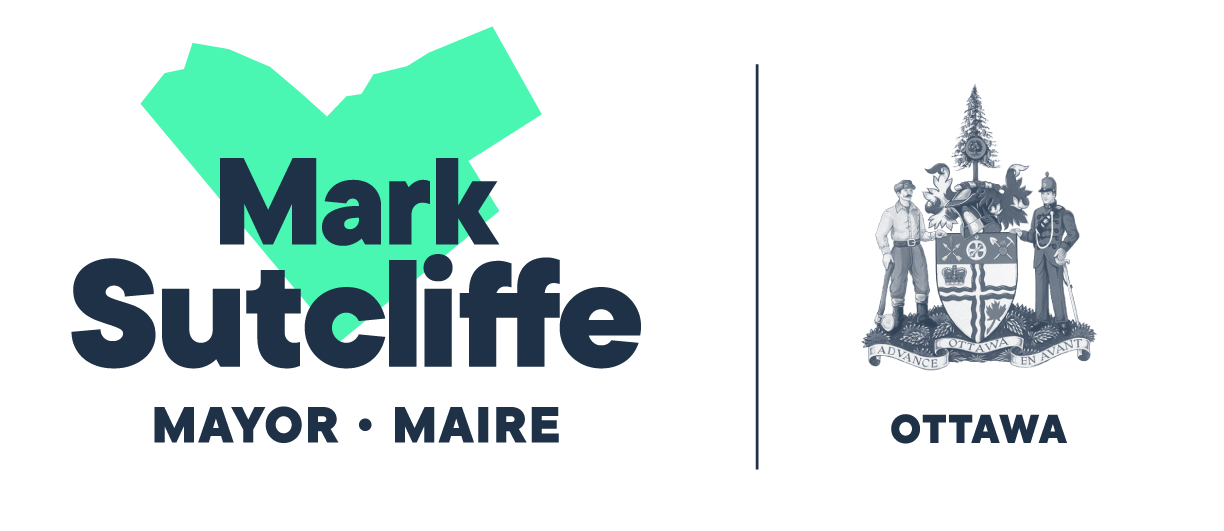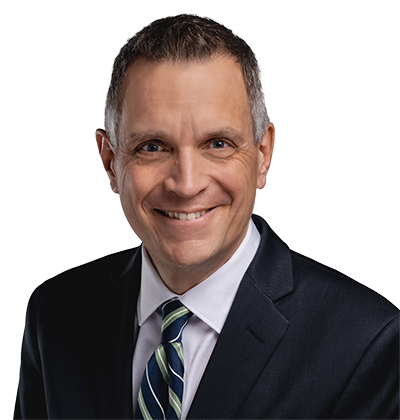Statement from Mayor Mark Sutcliffe on the 2025 Budget
11/09/2024
Statement from Mayor Mark Sutcliffe on the 2025 Budget
(Check against delivery)
Last year, on the day we passed the 2024 budget, I warned Ottawa residents that the next budget, this year’s budget, would be challenging.
I think at the media conference after the council meeting there were as many questions about the 2025 budget as there were about the 2024 budget we had just passed.
And one week after we passed the last budget, we had our first meeting about the next budget.
So it’s not news to say that we are entering into a tough budget process for 2025.
My goal, as it has been since I took this job, is to strike the right balance.
Mon objectif, depuis que je suis maire, a toujours été de trouver le bon équilibre.
Il faut d’abord investir dans les programmes et les services dont nos résidents ont besoin.
We must invest in the core programs and services that our residents rely on.
We must invest in a strong local economy and in supporting the most vulnerable.
And we must respect the cost pressures our residents are facing, the higher cost of food, housing, interest rates, and everything else, and not add to their burden with big tax increases.
The challenges we are facing are significant.
Les défis financiers auxquels nous sommes confrontés sont considérables.
I’ve spoken about them often over the past nine months.
I talked about them after the last budget passed. I talked about them at the first council meeting of the new year.
I talked about them when we negotiated with the provincial government on the deal for Ottawa that was announced in March.
I talked about them when I met with the prime minister in April.
J'en ai parlé lors de ma rencontre avec le Premier Ministre en avril.
I talked about them when I raised the issues of PILTs and transit funding in August.
Those challenges are reflected in the budget directions report that is being released today.
Ces défis sont reflétés dans le rapport sur les orientations budgétaires qui sera publié aujourd'hui.
And so is the balanced approach that I spoke of, that I talked about in the election campaign two years ago.
I made a commitment to the people of Ottawa in 2022 that I would keep tax increases as low as possible without cutting core programs and services.
En 2022, je me suis engagé auprès des résidents d'Ottawa de maintenir les augmentations de taxe le plus bas possible sans réduire l’offre des programmes et services.
The budget direction today includes a 2.9% increase for most areas of city operations.
But the report also has a unique element to it: for the first time, there is a range of possible options for addressing the structural deficit in our transit budget.
There’s a range of potential fare increases, a range of possible transit levy increases, a range of efficiencies and service reductions, and a range of contributions from other levels of government.
Today, we don’t know what the outcome will be from our negotiations with other levels of government.
Depending on that outcome, we will apply the levers we need in order to close the transit gap.
I remain optimistic that we will get the help we need. I’ve had regular meetings and conversations with both levels of government over the past few days. But if we don’t, we’ll have no choice but to look at increasing the transit levy, increasing fares, and reducing service.
Je reste optimiste et pense que nous obtiendrons l'aide dont nous avons besoin, mais si ce n'est pas le cas, nous n'aurons aucun autre choix que d'envisager une augmentation de la taxe sur les transports en commun, une augmentation des tarifs et une réduction des services.
In the interests of transparency and clarity, the budget direction for transit is written with the full range of impact described for each option. I want the public to understand what a $120-million structural deficit represents.
So, for example, the transit levy has a range of 2.9% all the way up to 37%, which is the number required to cover the $120-million deficit using only the transit levy.
The fare increase has a range of 2.5% all the way up to 75%, which is the number required to cover the $120-million deficit using only fares.
If we were to apply some combination of all of the levers, the numbers would be lower in each area.
Mais je veux que le public comprenne l'impact total dans chaque domaine. Je pense qu'ils méritent de connaître toutes les informations disponibles.
I want members of the public to understand the full impact in each area. I think they deserve to know all of this information.
These are not things we want to do. But there aren’t a lot of other solutions left.
Again, in the interests of transparency and clarity, I want to underline that the result of this budget direction is that we don’t know yet what the total tax increase will be for 2025.
The 2.9% direction is only for the parts of the budget that are not transit.
We may have to add to that number depending on how much other funding we receive and what levers we apply over the next few months.
So if the transit levy increases, for example, the tax increase could be a little bit higher than 2.9% or it could be a lot higher.
I know there are already people saying, why don’t you just impose big tax increases like other cities have done?
I know from speaking with residents that this is not what they want or expect from us.
Je sais, après avoir parlé avec de nombreux résidents, que cela n'est pas ce qu'ils ne veulent ni ce qu'ils s’attendent de nous.
Les résidents d'Ottawa sont déjà confrontés à une augmentation des coûts dans de nombreux aspects de leur vie quotidienne.
Ottawa residents are already dealing with rising costs in so many areas.
There are seniors on fixed incomes, families with rising mortgage and grocery costs, and so many other residents who can’t afford for us to add to their burden.
De fortes augmentations de taxe pourraient nous aider à gérer notre budget. Mais elles n'aideront pas nos résidents.
Big tax increases might help with our budget. But it won’t help our residents.
And I was elected to protect the interests of our residents. It’s simply not fair to pass the funding shortfalls of other levels of government on to our residents, who are already paying more than their fair share.
I don’t think our residents want us to let the other levels of government off the hook for the shortfalls in transit funding and in payments in lieu of taxes.
Je ne pense pas que nos résidents veuillent que nous laissions les autres niveaux de gouvernement se décharger de leur responsabilité envers les déficits de financement des transports en commun et des paiements versés en remplacement d’impôts.
The people advocating for big tax increases are basically saying it’s okay for the transit projects in the GTA to get 100% funding from other levels of government while we pay over half in Ottawa.
They’re saying it’s okay for the federal government to decrease its property tax payments to us.
I don’t think it’s okay. I won’t take the easy way out and add to the burden our residents are facing.
A big tax increase certainly would not be the easy way out for our residents.
Instead, over the coming weeks and months, we’ll continue to find savings and efficiencies, as we have done for the past two years.
We’ve saved more than $153 million in two years, the equivalent of a 7.5% tax increase on its own.
For a property owner with a home assessed at $500,000, that’s a savings of about $400.
We will continue to fight for Ottawa’s fair share.
Nous continuerons à nous battre pour qu'Ottawa reçoive sa juste part.
Je continuerai à rencontrer les responsables fédéraux et provinciaux pour plaider en faveur de l'aide dont nous avons besoin.
I’ll continue to meet with federal and provincial officials to advocate for the support we need.
And we’ll continue to work on the budget over the next two months so that when it’s tabled in early November, we are delivering a solid plan for 2025 that protects programs and services, including public transit, and doesn’t add enormously to the financial burden of our residents.
The budget directions are just the beginning.
Les orientations budgétaires ne sont qu'un début.
There is lots of hard work ahead.
And I will continue to bring a balanced approach to the budget, to defend the interests of Ottawa residents and fight for Ottawa’s fair share.
Thank you. Merci.

